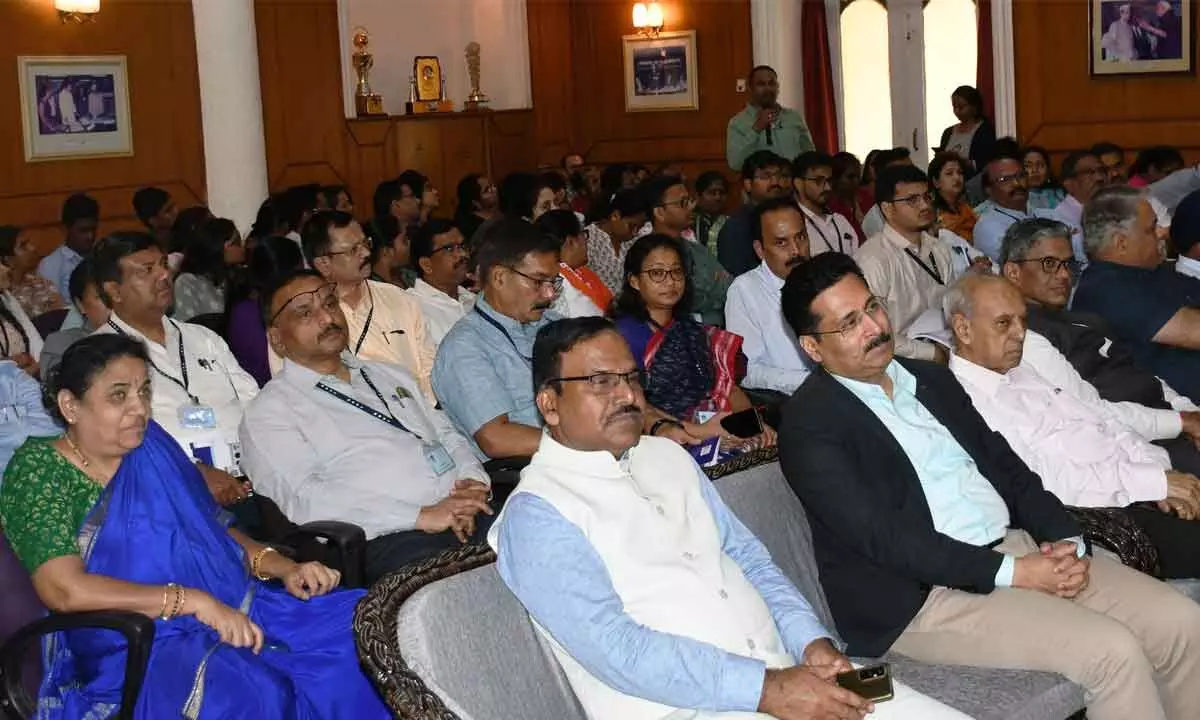Over $20 bn committed to transformational programs
Parameswaran Iyer, Executive Director at the World Bank and former CEO of NITI Aayog, delivered an insightful ASCI Lecture in Hyderabad
image for illustrative purpose

Swachh Bharat Mission addressed the challenges through its ‘4S’: Scale, Speed, Stigmas, and Sustainability. Measures included mobilizing school students, training local influencers, and leveraging mass media - Parameswaran Iyer, Executive Director, The World Bank
Hyderabad: More than $20 billion has been committed to implement various transformational programs in India, says Parameswaran Iyer, Executive Director at the World Bank and former CEO of NITI Aayog. He was here to deliver a lecture titled ‘Implementing At-scale Transformational Programs’, under the ASCI Lecture Series on Wednesday.
When asked about the funding arrangement, he said: “The Word Bank has given a loan of $1.5 billion to India. The Centre and States together committed the remaining funds in their respective budgets. The country has made remarkable success over the last decade in implementing large-scale transformational programs on the ground.”
Parameswaran emphasized India’s status as the world’s most populous country, highlighting that any endeavor undertaken in India, if executed effectively, has a significant global impact. He underscored the transition from conceptualization to implementation, which has transformed lives and improved living standards over the past ten years.
“These programs, delivered within a federal framework, demonstrate strong collaboration among the Central, State, and local levels, both in urban and rural areas, which is a hallmark of our federal system,” he said. Many of these initiatives have evolved into ‘Jan Andolans’ or people’s movements, where excitement about development fuels impactful stories.
Iyer cited the Swachh Bharat Mission as a prime example of a large-scale transformational program. The challenge in 2014 lay in sanitation, which lacked demand compared to clean water. Creating awareness and changing behaviors to emphasize the importance of sanitation posed a significant challenge, especially considering India’s high percentage of open defecators.
The Swachh Bharat Mission addressed these challenges through its ‘4S’: Scale, Speed, Stigmas, and Sustainability. Measures included mobilizing school students, training local influencers, and leveraging mass media. Eradicating stigmas was achieved through innovative approaches like the ‘Nudge Theory’ and leveraging popular culture.
Iyer addressed the challenges through the ABCDEF of Implementation: Aligning with the vision, fostering belief, effective communication, democratization, evaluating for credibility, and ensuring follow-through. The outcomes of the Swachh Bharat Revolution were monumental, with millions adopting improved sanitation practices and achieving open defecation-free status across villages and districts.
He also shared lessons learned, highlighting the critical role of political leadership, public financing, partnerships, and people’s participation. He then concluded his talk, addressing questions from the audience, including water stress management in Bengaluru, metrics to evaluate the Swachh Bharat Mission, and funding mechanisms.

